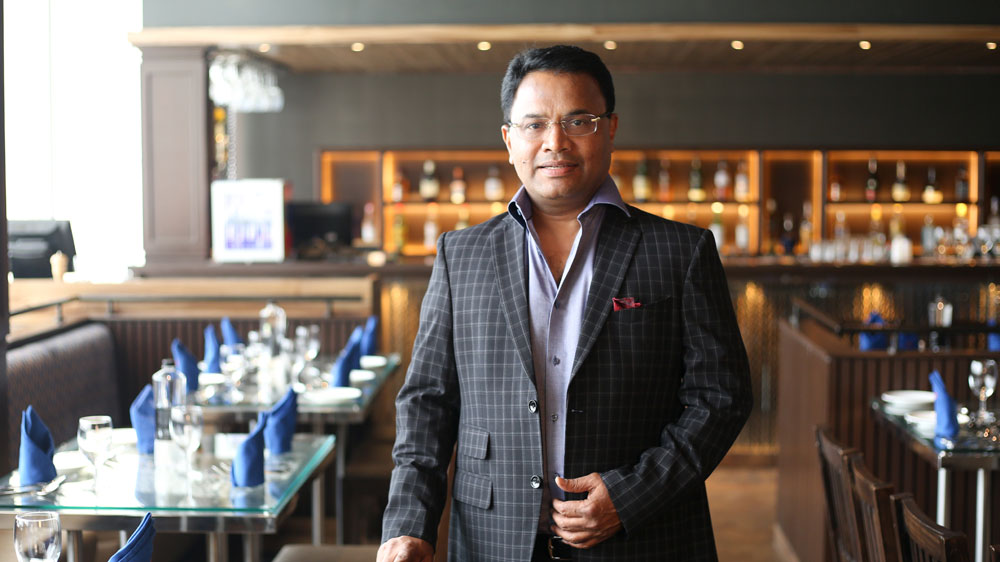
Stirring familiarisation with Indian adaptations, food outlets in India are going all out to revamp their decor, menus and seating under an improvisation-forward march. In an exclusive with Zarafshan Shiraz, Narayan T.Poojari, MD, Shiv Sagar Restaurants, shares the effect on his customers post upgrading.
What is the current customer preference in the market?
Today’s customer is wise and demanding. He knows what he wants and what to expect. It is the same customer who while visiting a restaurant for masses, expects value for money kind of food and when visiting fine dine restaurant, expects service and hospitality with good food.
What is your average ticket size?
Our average ticket size is between Rs. 150-200/-
Why do you think rebranding is a growth driver?
Restaurants in the fast food industry are required to be upgraded with time. Rebranding helps in maintaining constant connect with your customers. It helps in increasing the market share where you are strong.
What effect did it have on your footfall and sales (%growth)?
We have witnessed 15-20% growth post recent improvisations.
What recent improvisations have you brought in?
Store size- We have increased it from 1200 sq.f.t to 1800 sq.f.t in order to accommodate more seats.
Design: As our customers range from families to corporates, restaurants are designed with elements that soothe both - from comfortable chairs/sofas to long tables, ambient light, and modern interiors.
Menu customisation: Menu engineering is done constantly keeping pace with time. Dishes are added/removed as per the liking of customers.
Did the connection with the customers become loose after these improvisations?
Customers have always showered their love on us. We have seen growth with every new restaurant that we open.

Running a floating restaurant business in Mumbai is not an easy task. A lot of hurdles come to the way of the owners of such businesses. Here is a 10-step checklist to run a successful floating restaurant business in Mumbai.
- To start with such businesses, it is very important to acquire a new vessel which suits the waters of the area and has been cleared in all functional tests.
- The first step towards building the business is to acquire all mandatory licenses, permissions and concerned NOCs. For Celestial, we acquired 108 licenses over three years to make sure our business was approved by all government and maritime committees. The process has been laid out now as there are more businesses coming up in the same industry, but this stands out to be the most exhaustive and challenging process in setting up a floating restaurant in Mumbai.
- Another important point here would be to understand the scalability of the business, and if there’s scope to scale the business ahead since the vessel itself is a huge investment adding up to the time taken for the business to breakeven.
- The entrance which helps in boarding the vessel should have a gangway (a narrow passage that joins the quarterdeck to the forecastle of the boat). This part is important for safe embarkation and debarkation of passengers. For eg: AB Celestial is permanently anchored alongside the Jetty with a breasting barge, therefore, it is comfortable to board at any time without using a boat to go to and fro.
- The yacht strictly needs to be serviced every year. There are inspection and service checklists that need to be taken into high consideration for a good life span and optimal functioning of the boat. From inspection of the hull, keel and rudder to applying essential paints, oils and antifoul for vessel’s durability and performance; even the smallest of issues need to be taken care of every year.
- Safety equipment should be up to date. At no point should the boat have lesser safety, security and lifesaving equipment than its capacity for passengers, especially in the case of life jackets.
- There are daily, monthly checks involved in a yacht too depending on the usage in water. Since Celestial doesn’t sail, it mostly requires monthly checks to prevent corrosion, straining of water and operating temperature. A dedicated team of safety and security helps us maintain the vessel over the working season.
- With respect to safety, since I handle daily operations too, I’m always on duty to check fire safety measures, smoke alarms, heat detectors, etc. This is a daily process involved in my tasks. Our head chef ensures kitchen safety which comes under the restaurant and boat maintenance.
- For a floating restaurant business, it is important to have a dedicated trained, professional crew who stay 24X7 aboard on the vessel.
- Marine furniture and furnishings are integral to the design, comfort and functionality of each of the spaces on board. It’s important to look for durability, weight, compactness and adaptability of the interiors and exteriors. Building and maintaining interiors majorly depends on the usage as well as the added exposure to changeable temperatures and added moisture at sea.
Also Read: Three Years And 108 Licenses – Know How India's First Floatel Opened Doors For Other Water Businesses
Aishwarya Bhende is the Director at AB Celestial, Mumbai’s first Luxury Floating Restaurant. The floating restaurant was launched in 2017.
Copyright © 2009 - 2025 Restaurant India.










